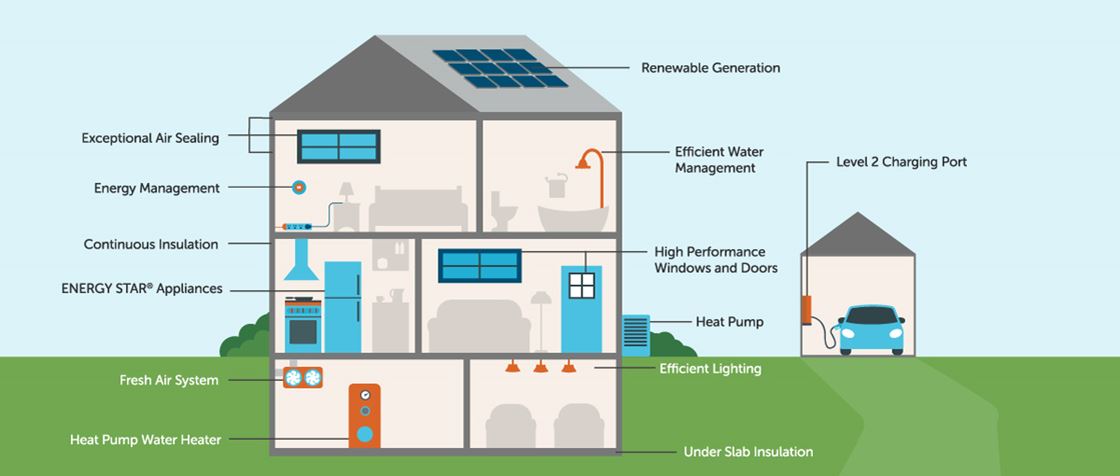Pulse of Information
Your source for the latest insights and updates.
Home Sweet Energy Saver
Unlock your home's potential with energy-saving tips and tricks that slash bills and boost comfort—transform your space today!
10 Easy Ways to Save Energy at Home
Saving energy at home is not only beneficial for your wallet but also for the environment. Here are 10 easy ways to save energy that can be effortlessly integrated into your daily routine:
- Use energy-efficient appliances: Always choose appliances labeled with the Energy Star rating.
- Seal leaks: Check for drafts around windows and doors and use weather stripping or caulk to seal any gaps.
- Upgrade insulation: Proper insulation in your attic and walls can significantly reduce heating and cooling costs.
- Utilize natural light: Open curtains during the day to let sunlight in and reduce reliance on artificial lighting.
- Turn off electronics: Unplug devices or use a power strip to easily shut off multiple devices at once when they are not in use.
Implementing simple changes in your household can lead to significant energy saving. Here are the remaining 5 easy ways to save energy:
- Use programmable thermostats: Set your thermostat to adjust temperatures automatically when you're not home.
- Wash clothes in cold water: This can save a considerable amount of energy compared to using hot water.
- Maintain your heating and cooling system: Regular maintenance can keep your system running efficiently.
- Limit hot water usage: Install low-flow showerheads and fix leaks promptly to conserve water heating energy.
- Practice smart cooking: Use microwave ovens, slow cookers, or pressure cookers which consume less energy than conventional ovens.

Understanding Your Energy Bill: Tips for Lowering Costs
Your energy bill can often seem like a mystery, with complex charges that make it difficult to understand where your money is going. Understanding your energy bill is crucial for identifying areas where you can save. Start by examining the different components of your bill, such as the base charge, energy usage, and transmission and distribution charges. Familiarizing yourself with these terms will help you spot any unexpected fees or charges that could be inflated and lead to unnecessarily high costs.
To effectively lower your energy costs, consider implementing a few practical tips. First, adjust your thermostat by a couple of degrees; even a small change can significantly reduce your energy usage. Additionally, using energy-efficient appliances can make a big difference in your monthly bill. You might also want to explore options like switching to a time-of-use plan if available, as this can help you take advantage of lower rates during off-peak hours. Remember, every little bit counts when it comes to reducing energy costs.
How Can Energy-Efficient Appliances Impact Your Home?
Energy-efficient appliances play a crucial role in reducing energy consumption in homes, leading to both environmental and financial benefits. By utilizing advanced technology and design, these appliances consume less electricity, which not only lowers utility bills but also decreases the overall carbon footprint of your household. For instance, Energy Star rated appliances can reduce energy use by up to 50%, making a significant impact over time. Investing in energy-efficient models encourages sustainable living while providing homeowners with immediate savings on their energy bills.
In addition to savings, energy-efficient appliances contribute to increased comfort and improved performance in the home. Many of these appliances are designed to operate more quietly and effectively than their traditional counterparts. For example, energy-efficient refrigerators maintain consistent temperatures and reduce food spoilage, while low-flow showerheads can enhance your shower experience by providing consistent water pressure. The transition to energy-efficient options not only benefits the environment but also fosters a more enjoyable living space for families.